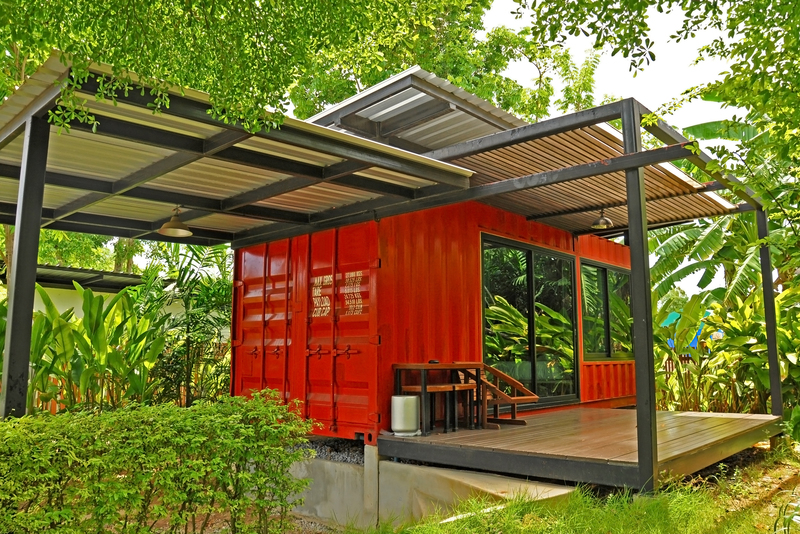Budget-Friendly Waste Solutions: Rubbish Removal Bags Versus Skips
Waste management is an essential aspect of any construction project, household clean-up, or garden overhaul. Choosing the most cost-effective and practical solution can save you time, money, and hassle. Two of the most popular options are rubbish removal bags and skips. In this guide, we will delve into the advantages, limitations, and unique features of both choices, helping you determine the top budget-friendly waste removal solution for your specific needs.
Understanding Waste Solutions: The Basics
Whether you're undertaking a spring clear-out, renovating your home, or managing waste at a commercial site, efficient waste disposal is critical. Poor waste management not only leads to unsightly mess but can also attract pests, pose health hazards, and potentially result in fines.
Two of the most common methods adopted by homeowners and businesses alike are:
- Rubbish removal bags (also known as skip bags, waste bags, or builder's bags)
- Traditional skips
Each waste disposal method provides different benefits and can have an impact on your project's budget, timeline, and environmental footprint.

What Are Rubbish Removal Bags?
Rubbish removal bags have grown in popularity due to their flexibility, convenience, and affordability. These sturdy, reusable polypropylene bags are designed to hold various types of waste--including household debris, garden refuse, and light construction waste.
- Available in a range of sizes (often from 1 to 4 cubic yards)
- Easy to store and set up at your convenience
- Collected by waste removal companies with crane-equipped trucks
Key Feature: Most service providers allow you to fill the bag in your own time, only scheduling collection when it's ready.
What Are Skips?
Skips are large, durable metal containers that have been a familiar sight on building sites and driveways for decades. They are typically used for bulkier or heavier waste materials and can accommodate the requirements of much larger projects.
- Come in a wide variety of sizes, from 2-yard mini skips up to 40-yard containers
- Placed at your location, usually via a lorry or specialist skip-delivery vehicle
- Emptied or removed once you have filled them, usually within a set hire time
Skips remain the go-to waste removal solution for many commercial, industrial, and large-scale domestic jobs.
Comparing Costs: The Budget Angle
Budget-friendly waste solutions are a priority for homeowners and contractors trying to keep expenses down. The choice between rubbish bags and skips can have a substantial impact on your overall project costs.
Initial Outlay: Hire Costs and Purchase Prices
- Rubbish removal bags are typically cheaper to buy. Entry-level bags can cost as little as ?10-?20, with collection fees ranging from ?70-?130 for a standard bag.
- Skip hire is more costly upfront. Small skips may start from ?100-?150 for a week's hire, while larger 6-8 yard skips often cost ?200-?300 or more.
Total Value: What's Included?
With rubbish removal bags, you only pay for what you use--buy the bag, fill it at your own pace, and pay for collection when you're ready. Skip hire fees often include delivery and a fixed hire period (often 7-14 days), which can feel less flexible.
- No hidden costs: With bags, you avoid overpaying for space you don't use.
- Potential extra charges: Skips may incur fees for permits, overfilling, or longer hire periods.
Summary: For small to medium projects, rubbish removal bags tend to offer better value for money.
Practicality and Convenience
Space Requirements
- Rubbish bags can be placed almost anywhere--front gardens, driveways, even indoors before moving outside for collection.
- Skips need vehicular access for delivery and collection, and space for placement can be a constraint (especially in urban environments).
Flexibility
- Bags let you decide when to fill and when to book a collection--no pressure or rental deadlines.
- Skips typically require you to finish within a designated period, or you may face additional charges.
Permitting
- Most rubbish removal bags do not require a council permit if kept on private property.
- If you need a skip placed on a public road, a skip hire permit (and possibly lighting or signage) is usually required--and this can add significant cost and admin.
Environmental Impact & Waste Types
What Can You Dispose of?
- Rubbish bags accept most types of non-hazardous waste, including furniture, garden clippings, general litter, small appliances, and even building rubble (with weight limits).
- Skips are suitable for heavier or bulkier waste, such as hardcore, soil, tiles, or large broken furniture items.
- Both options usually exclude hazardous materials (like asbestos, batteries, chemicals, or certain electronics).
Recycling and Sustainability
Leading waste removal companies now prioritize recycling. Bags are typically sorted at licensed facilities, with efforts to divert as much as possible from landfill. Larger skip firms often provide detailed recycling reports for commercial clients.
- Bags can be reused or recycled themselves, reducing environmental impact.
- Compact skips maximize haulage efficiency, though the larger the skip, the more challenging it can be to ensure sorted, recyclable waste.
Ease of Use & Accessibility
Rubbish Removal Bags
- Lightweight--can be moved and unfolded by one person
- No need for specialist vehicles at delivery--only for collection
- Available at local DIY stores and online
- Takes up little space before use
Skip Hire
- Skips are heavy and fixed in place until collection
- Can require wide vehicular access
- Often have higher minimum hire costs
- Pickup may require advanced scheduling
Common Scenarios: Which Waste Solution is Right For You?
Both rubbish bags and skips have their strengths, but the best budget-friendly waste solution often depends on your circumstances.
When Rubbish Removal Bags Make Sense
- Small to medium-scale home or garden projects
- Flat or terraced homes with limited access
- You're working at your own pace and want flexibility
- No space or permit for a skip on the street
- You want to pay only for the waste you produce
When Skips Are the Smarter Option
- Large renovations or full house clearances
- Commercial sites with consistent, high-volume waste
- Bulky or heavy items difficult to fit in bags
- Access to off-street parking or private land for skip placement
Case Studies: Practical Examples
Garden Clean-Up
Homeowners clearing a modest garden in a suburban area found the rubbish removal bag ideal. It fitted easily beside their shed, collected hedge trimmings and small stones, and was picked up after a few weekends of gradual progress--all for under ?100.
Bathroom Renovation
A household in Central London lacked driveway space for a skip and local regulations made skip permits expensive and slow to acquire. They used two medium-sized waste removal bags for old tiles, plasterboard, and broken fixtures--saving on permit and skip hire fees while keeping the site clear.
Full House Clearance
For a five-bedroom house clearance, a large skip (8 yards) proved more cost-effective overall, especially with lots of heavy furniture and mixed debris. Removing multiple rubbish bags would have required coordinated collections and risked overweight charges.

Money-Saving Tips for Budget Waste Management
- Plan ahead: Estimate your waste volume carefully; order the right size bag or skip.
- Avoid overfilling: Both bags and skips have weight/height limits. Excess waste may incur costly penalty charges.
- Share with neighbours: For skips, consider joint hire on the same street to split costs--particularly for bulky clearances.
- Reuse and recycle: Remove recyclables before disposal. Many household items can be recycled free of charge at council facilities.
- Book online: Many waste companies offer discounts for online orders.
- Check for permits: If you use a skip, factor permit costs and allow time for approval.
Conclusion: How to Choose the Best Budget-Friendly Waste Solution
In the battle of rubbish removal bags versus skips, there's no universal winner--just the right choice for your needs and your wallet.
- For smaller, lighter, and less time-sensitive waste: Flexible, affordable waste removal bags are the most budget-friendly waste solution.
- For larger, heavier, or ongoing waste: A skip may work out cheaper by volume and save time on repeated pickups.
Ultimately: Weigh your expected waste volume, project scale, available space, and time constraints. By understanding the pros, cons, and true costs of each waste removal method, you can save money and make your project clean-up as hassle-free as possible.
Key Takeaways: Rubbish Removal Bags vs Skips
- Rubbish removal bags: Perfect for smaller projects, highly flexible, no permits on private land, low initial cost.
- Skips: Best for bulkier, heavier or prolonged waste, suitable for commercial use, may need permits, higher upfront cost but lower per-cubic-yard price for large jobs.
As the drive toward sustainability and smart budgeting continues, modern waste solutions like removal bags and skips can help you balance convenience, cost, and responsibility with ease. Choose wisely and dispose of your waste the budget-friendly way!
